
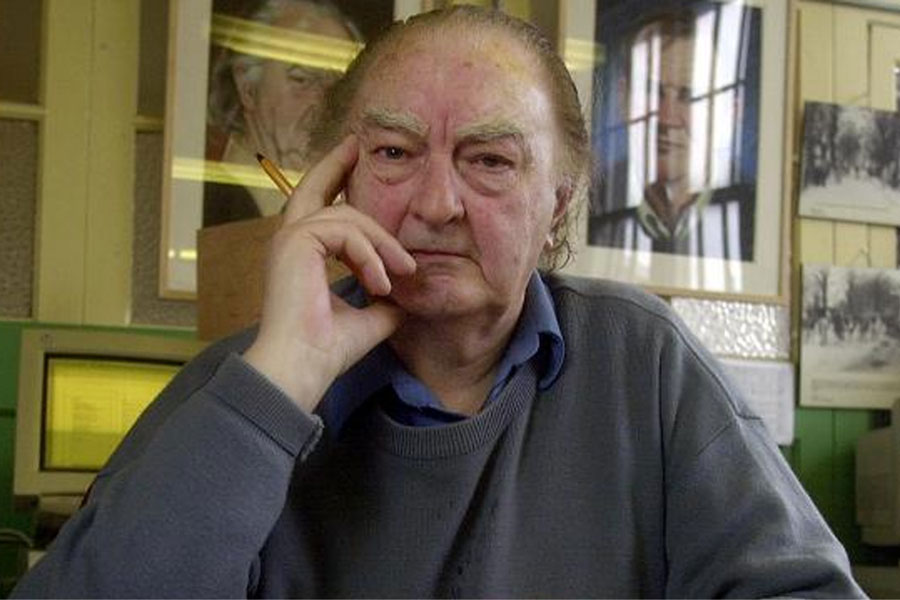
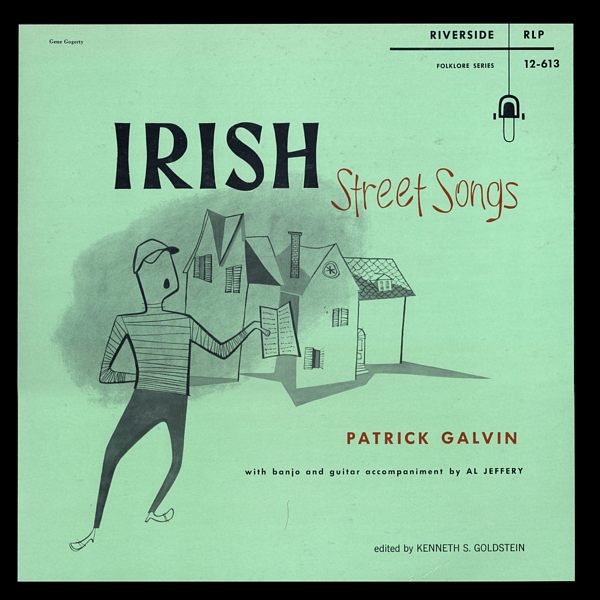 |
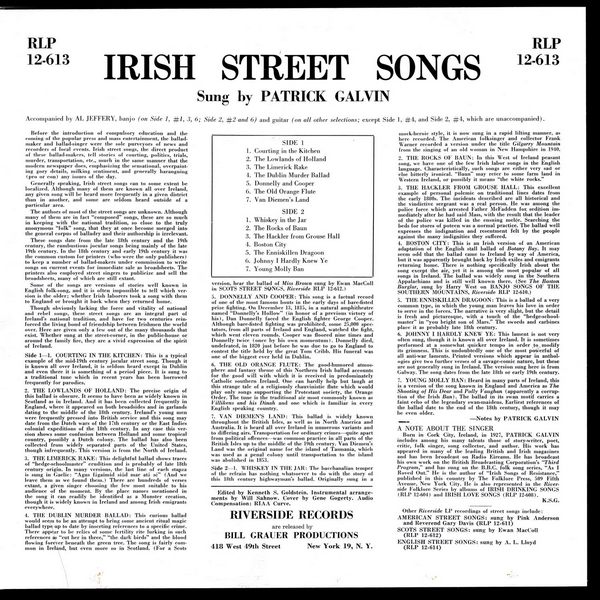
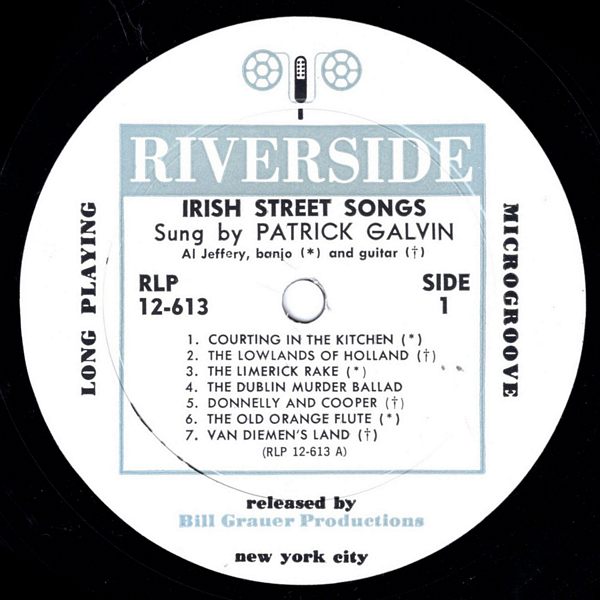
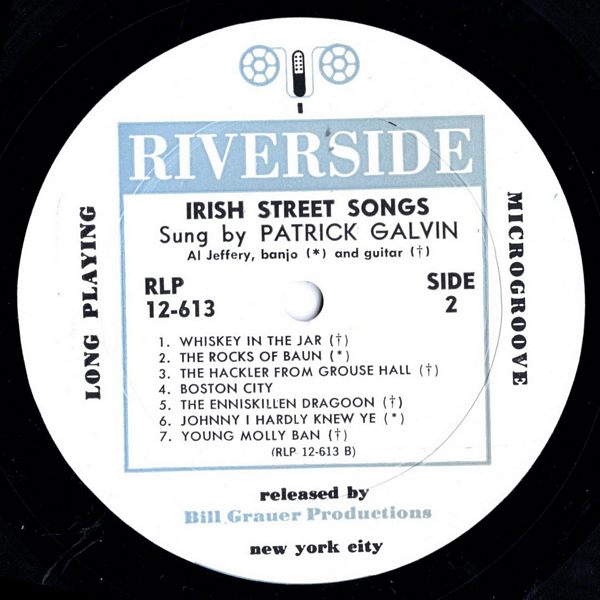 |
Sleeve Notes
Before the introduction of compulsory education and the coming of the popular press and mass entertainment, the ballad-maker and ballad-singer were the sole purveyors of news and recorders of local events. Irish street songs, the direct product of these ballad-makers, tell stories of courting, politics, trials, murder, transportation, etc., much in the same manner that the modern newspaper does, emphasizing the sensational, overpainting gory details, milking sentiment, and generally haranguing (pro or con) any issues of the day.
Generally speaking, Irish street songs can to some extent be localized. Although many of them are known all over Ireland, any given song will be heard more frequently in a given district than in another, and some are seldom heard outside of a particular area.
The authors of most of the street songs are unknown. Although many of them are in fact "composed" songs, these are so much in keeping with the national tradition, so close to the truly anonymous "folk" song, that they at once become merged into the general corpus of balladry and their authorship is irrelevant.
These songs date from the late 18th century and the 19th century, the rumbustious jocular songs being mainly of the late 19th century. In the 18th century and early 19th century it was the common custom for printers (who were the only publishers) to keep a number of ballad-makers under commission to write songs on current events for immediate sale as broadsheets. The printers also employed street singers to publicize and sell the broadsheets, many of which are still extant.
Some of the songs are versions of stories well known in English folk-song, and it is often impossible to tell which version is the older; whether Irish laborers took a song with them to England or brought it back when they returned home.
Though obviously lacking the force and vitality of national and rebel songs, these street songs are an integral part of Ireland's national tradition, and have for two centuries reinforced the living bond of friendship between Irishmen the world over. Here are given only a few out of the many thousands that exist. Whether sung at the street-corner, in the public-house or around the family fire, they are a vivid expression of the spirit of Ireland.
COURTING IN THE KITCHEN —
This is a typical example of the mid-19th century jocular street song. Though it is known all over Ireland, it is seldom heard except in Dublin and even there it is something of a period piece. It is sung to a traditional tune which in recent years has been borrowed frequently for parodies.
THE LOWLANDS OF HOLLAND —
The precise origin of this ballad is obscure. It seems to have been as widely known in Scotland as in Ireland. And it has been collected frequently in England, where it appeared on both broadsides and in garlands dating to the middle of the 18th century. Ireland's young men were frequently pressed into British service and this song may date from the Dutch wars of the 17th century or the East Indies colonial expeditions of the 18th century. In any case this version shows some confusion between Holland and some tropical country, possibly a Dutch colony. The ballad has also been collected from widely separated parts of the United States, though infrequently. This version is from the North of Ireland.
THE LIMERICK RAKE —
This delightful ballad shows traces of "hedge-schoolmaster" erudition and is probably of late 18th century origin. In many versions, the last line of each stanza is sung in Gaelic: "Agús fagaimid siúd mar atá sé" (And we leave them as we found them.) There are hundreds of verses extant, a given singer choosing the few most suitable to his audience of the moment. By the place names mentioned in the song it can readily be identified as a Munster creation, though it is widely known in Ireland and among Irish emigrants everywhere.
THE DUBLIN MURDER BALLAD —
This curious ballad would seem to be an attempt to bring some ancient ritual magic ballad type up to date by inserting references to a specific crime. There appear to be relics of some fertility rite lurking in such references as "cut her in three," "the dark birds" and the blood flowing forever beneath the green tree. The song is fairly common in Ireland, but even more so in Scotland. (For a Scots version, hear the ballad of Miss Broun sung by
Ewan MacColl in SCOTS STREET SONGS, (Riverside RLP 12-612.).
DONNELLY AND COOPER —
This song is a factual record of one of the most famous bouts in the early days of bare-fisted prize fighting. On December 13. 1815. in a natural amphitheatre named "Donnelly's Hollow" (in honor of a previous victory of his). Dan Donnelly faced the English fighter George Cooper. Although bare-fisted fighting was prohibited, some 25,000 spectators, from all parts of Ireland and England, watched the fight, which went eleven rounds. Cooper was floored nine times and Donnelly twice (once by his own momentum). Donnelly died, undefeated, in 1820 just before he was due to go to England to contest the title held by the great Tom Cribb. His funeral was one of the biggest ever held in Dublin.
THE OLD ORANGE FLUTE —
The good-humored atmosphere and fantasy theme of this Northern Irish ballad accounts for the good will with which it is received in predominately Catholic southern Ireland. One can hardly help but laugh at this strange tale of a religiously chauvinistic flute which would play only songs supporting the Protestant society, the Orange Order. The tune is the traditional air most commonly known as Villikens and his Dinah and one which is familiar in every English speaking country.
VAN DIEMEN'S LAND —
This ballad is widely known throughout the British Isles, as well as in North America and Australia. It is heard all over Ireland in numerous variants and to differing airs. Transportation for ordinary crimes — quite apart from political offences — was common practice in all parts of the British Isles up to the middle of the 19th century. Van Diemen's Land was the original name for the island of Tasmania, which was used as a penal colony until transportation to the island was abolished in 1853.
WHISKEY IN THE JAR —
The bacchanalian temper of the refrain has nothing whatsoever to do with the story of this 18th century highwayman's ballad. Originally sung in a mock-heroic style, it is now sung in a rapid lilting manner, as here recorded. The American folksinger and collector Frank Warner recorded a version under the title Gilgarry Mountain from the singing of an old woman in New Hampshire in 1910.
THE ROCKS OF BAUN —
In this West of Ireland peasant song, we have one of the few Irish labor songs in the English language. Characteristically, such songs are either very sad or else bitterly ironical. "Baun" may refer to some farm land in Western Ireland, or possibly it means "the white rocks."
THE HACKLER FROM GROUSE HALL —
This excellent example of personal polemic on traditional lines dates from the early 1880s. The incidents described are all historical and the vindictive sergeant was a real person. He was among the police force which arrested Father McFadden for sedition immediately after he had said Mass, with the result that the leader of the police was killed in the ensuing melee. Searching the beds for stores of poteen was a normal practice. The ballad well expresses the indignation and resentment felt by the people against the many indignities they suffered.
BOSTON CITY —
This is an Irish version of an American adaptation of the English stall ballad of Botany Bay. It may seem odd that the ballad came to Ireland by way of America, but it was apparently brought back by Irish exiles and emigrants returning home. There is nothing specifically Irish about the song except the air, yet it is among the most popular of all songs in Ireland. The ballad was widely sung in the Southern Appalachians and is still well known there. (See The Boston Burglar, sung by Harry West on BANJO SONGS OF THE SOUTHERN MOUNTAINS, Riverside RLP 12-610.)
THE ENNISKILLEN DRAGOON —
This is a ballad of a very common type, in which the young man leaves his love in order to serve in the forces. The narrative is very slight, but the detail is fresh and picturesque, with a touch of the "hedge-schoolmaster" in "you bright son of Mars." The swords and carbines place it as probably late 18th century.
JOHNNY I HARDLY KNEW YE —
This lament is not very often sung, though it is known all over Ireland. It is sometimes performed at a somewhat quicker tempo in order to modify its grimness. This is undoubtedly one of the most powerful of all anti-war laments. Printed versions which appear in anthologies give two further verses of a savage-comic nature, but these are not generally sung in Ireland. The version sung here is from Galway. The song dates from the late 18th or early 19th century.
YOUNG MOLLY BAN —
Heard in many parts of Ireland, this is a version of the song known in England and America as The Shooting of His Dear and Polly Vaughan (apparently a corruption of the Irish Ban). The ballad in its swan motif carries a faint echo of the legendary swan-maidens. Earliest references of the ballad date to the end of the 18th century, though it may be even older.
— Notes by PATRICK GALVIN
A NOTE ABOUT THE SINGER
Born in Cork City, Ireland, in 1927, PATRICK GALVIN includes among his many talents those of story-writer, poet, critic, folk singer, song collector, and author. His work has appeared in many of the leading British and Irish magazines and has been broadcast on Radio Eireann. He has broadcast his own work on the British Broadcasting Corporation's "Third Program," and has sung on the B.B.C. folk song series, "As I Roved Out." He is the author of "Irish Songs of Resistance," published in this country by The Folklore Press, 509 Fifth Avenue, New York City. He is also represented in the Riverside Folklore Series by albums of IRISH DRINKING SONGS (RLP 12-604) and IRISH LOVE SONGS (RLP 12-608).
K.S.G.